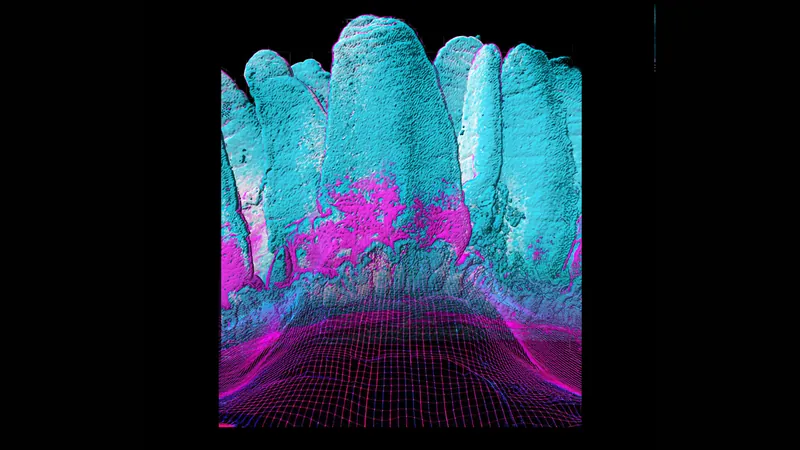
Groundbreaking Study Reveals How Pregnancy Alters the Gut for Optimal Nutrition
2024-12-13
Author: Wei
Groundbreaking Study Reveals How Pregnancy Alters the Gut for Optimal Nutrition
New research has uncovered a significant transformation in the female body during pregnancy, focusing on an oft-overlooked component: the gut. As expectant mothers experience a myriad of physiological changes — from expanding breasts to a quickening heart rate — scientists have confirmed that the gut undergoes a dramatic remodeling process as well.
A study recently published in the journal *Nature* details how the epithelium, the lining of the small intestine, not only doubles in size during pregnancy but also undergoes structural changes that could enhance nutrient absorption. This adaptation is crucial for mothers as they require additional nutrients to support the developing fetus and their own health. The research team suggests that these changes may enable mothers to absorb more nutrients from food, effectively directing a greater share to their unborn babies, although this hypothesis still requires confirmation.
Dr. Josef Penninger, a prominent scientific director at the Helmholtz Centre for Infection Research in Germany and co-author of the study, expressed enthusiasm over their findings. "Our team has discovered an amazing new way how mothers’ bodies change to keep babies healthy," he stated, emphasizing the importance of understanding these biological adaptations.
The research delved into the role of a signaling molecule known as RANK, previously recognized for its influence on mammary gland development. Hormones tied to reproduction, such as progesterone, significantly boost the production of RANK, suggesting its major role in orchestrating the myriad body changes associated with pregnancy.
For their investigation, the scientists utilized stem cells to create small, 3D organoids that mimic the human and mouse small intestine. By exposing these organoids to RANK, they observed pivotal structural changes within the epithelial cells. The villi — tiny, finger-like projections that increase the gut's surface area for enhanced nutrient absorption — became elongated and flattened. This same pattern was also observed in pregnant and breastfeeding mice; however, those genetically modified not to produce RANK did not experience these beneficial changes.
Moreover, lactating mice lacking RANK produced milk with significantly fewer nutrients, resulting in underweight offspring compared to those from RANK-producing mothers. This data supports the hypothesis that the remodeling of the intestinal epithelium is a natural evolution during reproduction, aimed at maximizing nutrient intake for both mother and child.
In summary, this research provides valuable new insights into how pregnancy affects the female body on a molecular and structural level. Moving forward, the research team intends to explore whether similar transformations occur in humans and to identify additional factors that might influence this complex process.
Stay tuned as we continue to unveil the secrets of maternal health and the incredible adaptations of the human body in the face of new life!



 Brasil (PT)
Brasil (PT)
 Canada (EN)
Canada (EN)
 Chile (ES)
Chile (ES)
 España (ES)
España (ES)
 France (FR)
France (FR)
 Hong Kong (EN)
Hong Kong (EN)
 Italia (IT)
Italia (IT)
 日本 (JA)
日本 (JA)
 Magyarország (HU)
Magyarország (HU)
 Norge (NO)
Norge (NO)
 Polska (PL)
Polska (PL)
 Schweiz (DE)
Schweiz (DE)
 Singapore (EN)
Singapore (EN)
 Sverige (SV)
Sverige (SV)
 Suomi (FI)
Suomi (FI)
 Türkiye (TR)
Türkiye (TR)